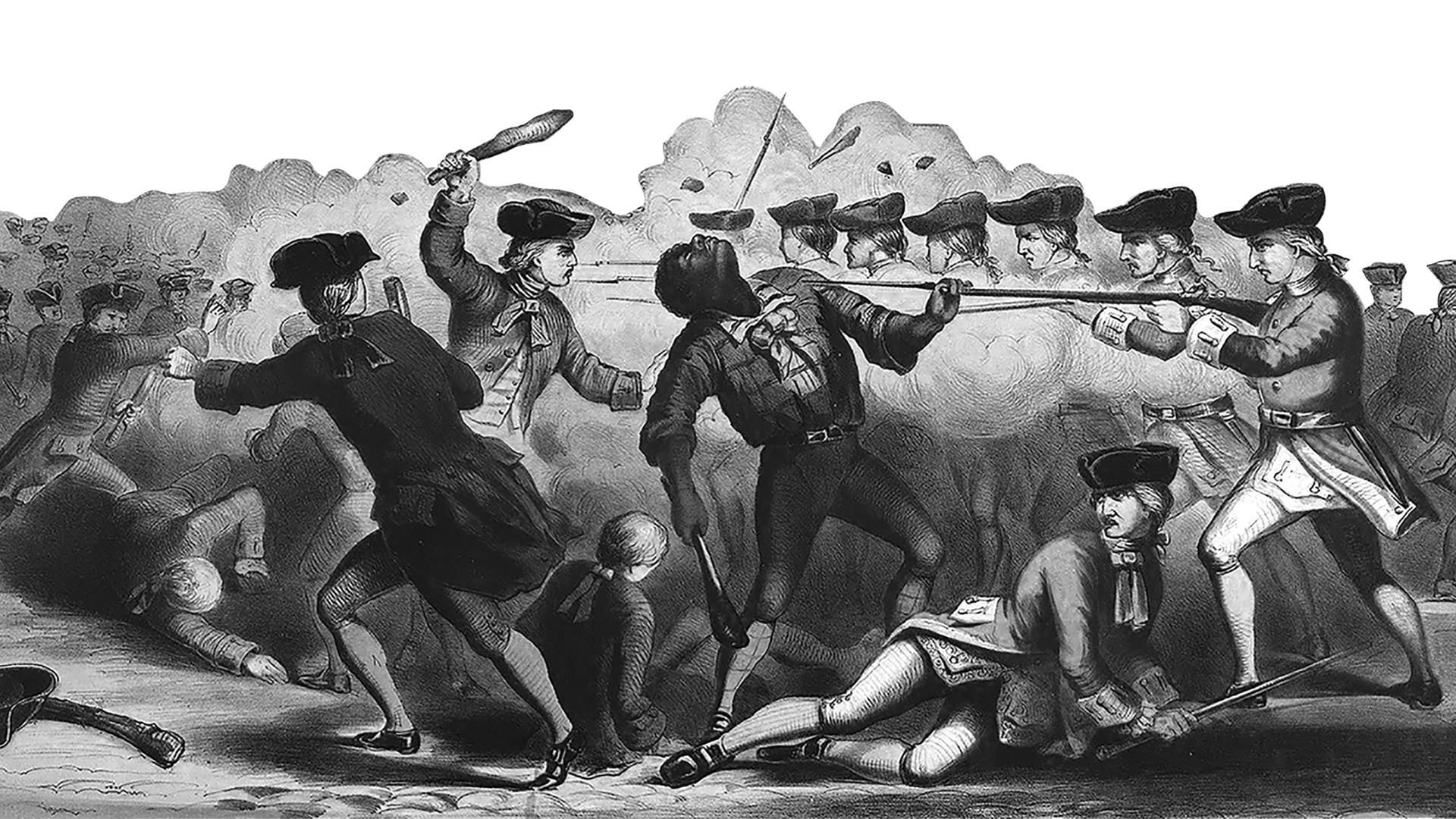
First In, Last Out


American Revolution
1775—1783
First In, Last Out
During the American Revolution (1775–1783), Black men and women were essential in the struggle for American independence. From Crispus Attucks in the Boston Massacre to James Lafayette at the battle of Yorktown, their sacrifice and bravery helped set the stage for our nation's founding.
ShowHide Transcript
No one really knows how the attack started on the night of March 5th, 1770. But when the smoke settled on King Street in Boston, Massachusetts, five Americans were dead or dying.
The first victim of British bullets was Crispus Attucks, a Black man. Attucks is considered to be the first man to shed his blood for American independence.
Many of the founding fathers opposed arming slaves and free Black people. Despite this, in 1778, Rhode Island passed a law allowing able-bodied Black American and Native American men to enlist.
The First Rhode Island Regiment, an integrated unit of some 200 men, fought bravely against British-hired German soldiers.
It was these Rhode Island troops who helped turn the tide at the siege of Yorktown in 1781. There, British troops under General Cornwallis had fortified his position, holding fast through weeks of artillery bombardment, while the Americans and their French allies dug trenches, inching closer to surrounding the enemy.
Finally, on the night of October 14th, General Washington ordered a nighttime, close-quarters assault on the last two defenses on the British line.
The Rhode Island Regiment, led by Lieutenant Colonel Alexander Hamilton, attacked Redoubt 10.
Advancing under cover of darkness, they charged in. After hard hand-to-hand fighting, the Rhode Island Regiment was victorious. Both British Redoubts fell that night. Two days later, Cornwallis surrendered.
The victory at Yorktown was the result of months of careful planning. In this effort, too, one of the most remarkable patriots to serve was an African American man known only as James.
Enslaved by the Armistead family in eastern Virginia, James volunteered for the Continental Army in 1781. The Marquis de Lafayette, commanding troops in the area at that time, selected him for secret service.
James secured a position in the camp of British general Lord Cornwallis. He was so well-known locally, and so convincingly played the part of a loyal servant, that Cornwallis trusted James enough to ask him to spy on the Americans.
As a double agent, James gave unimportant or false information to Cornwallis, while keeping General Lafayette informed about British troop strength and positions. His reports were key to American and French troops besieging Yorktown.
Despite his service, James remained a slave after the war ended. In 1784, James petitioned the Virginia General Assembly for his freedom. He presented a note from General Lafayette describing his valuable service. In 1786, he was freed—and adopted the name James Lafayette.
When the Marquis de Lafayette revisited America on a triumphant tour in 1824, he recognized James among the crowds and embraced him.
From Crispus Attucks in the Boston Massacre to James Lafayette at the battle of Yorktown, Black men and women warriors fought for American independence.
Black men and women warriors fought for American independence.